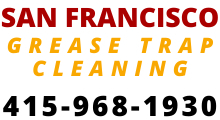Used Cooking Oil Recycling
San Francisco
Professional Cooking Oil Collection and Recycling for San Francisco Food Service Facilities
Reliable used cooking oil pickup and recycling services that convert waste oil into renewable energy while providing revenue opportunities for restaurants, cafeterias, and commercial kitchens throughout San Francisco
San Francisco Grease Trap Cleaning offers comprehensive used cooking oil collection programs designed for San Francisco food service operations, transforming waste cooking oil into valuable biodiesel and renewable energy resources.
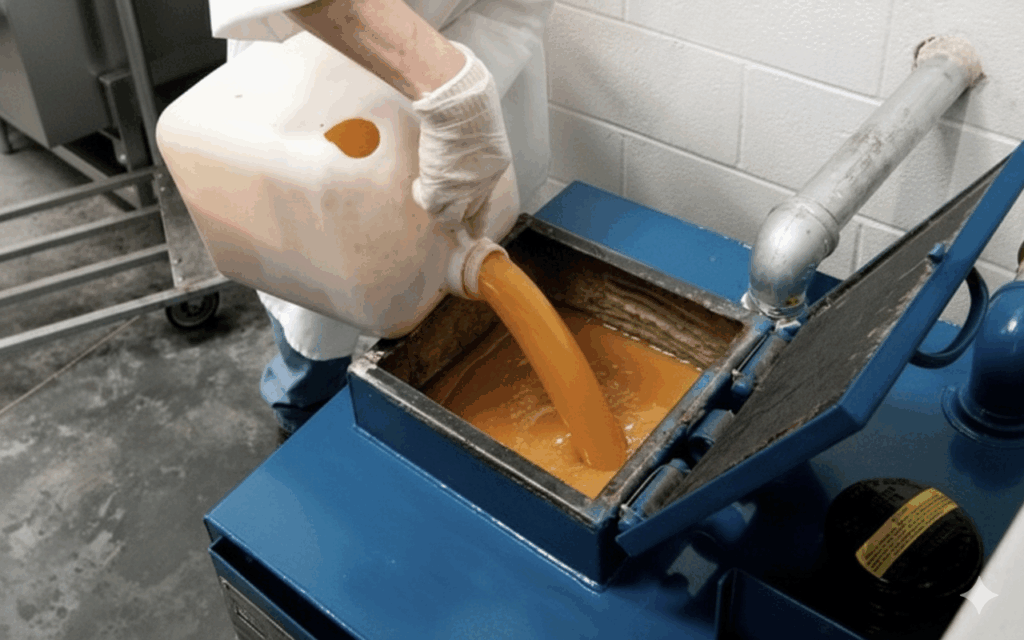
REQUEST YOUR SAN FRANCISCO COOKING OIL RECYCLING SERVICE
GET A GUARANTEED CALL BACK TODAY

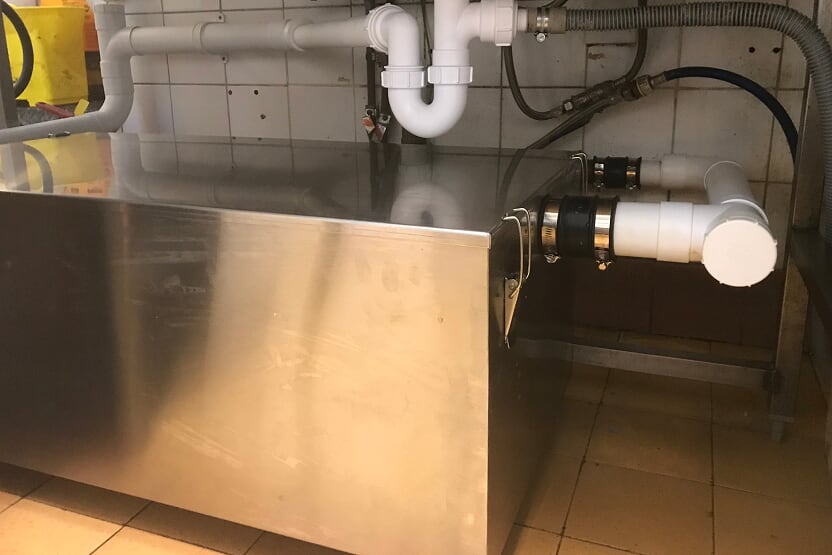
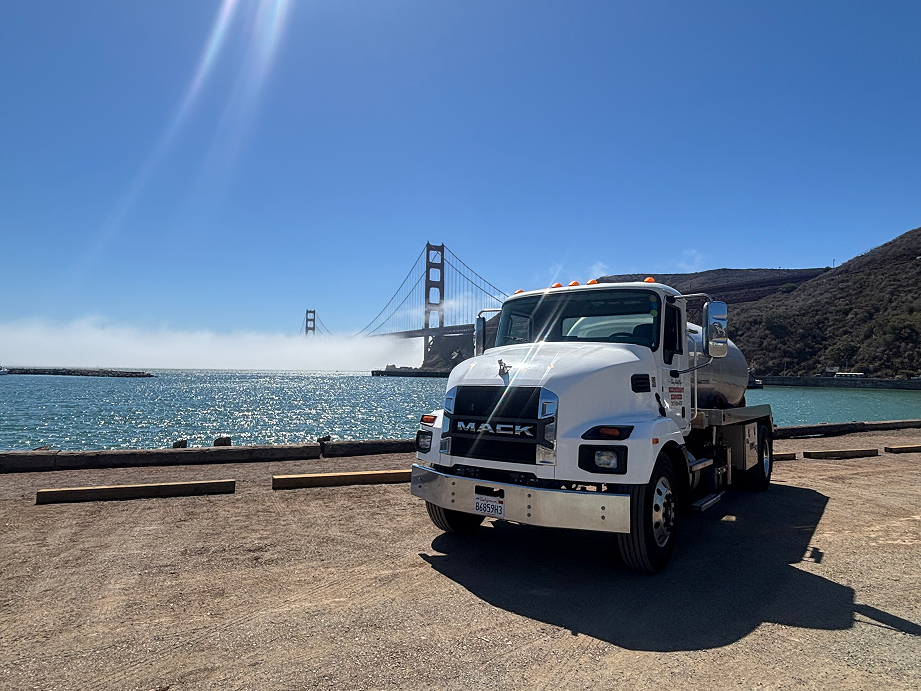
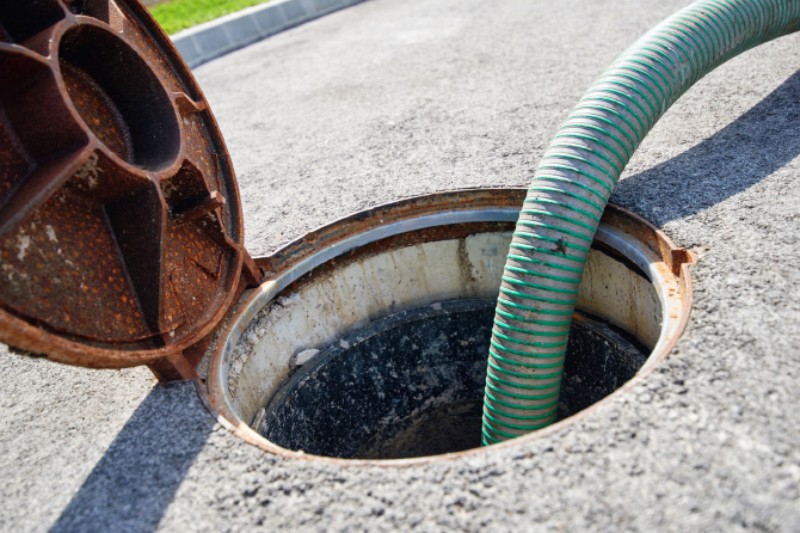
Professional Used Cooking Oil Collection for San Francisco Restaurants
San Francisco food service facilities generate substantial amounts of used cooking oil that requires proper handling, storage, and disposal. Rather than treating waste oil as a liability, forward-thinking restaurants partner with professional recycling services that convert this byproduct into renewable energy while potentially generating revenue.
Our used cooking oil collection program provides San Francisco commercial kitchens with convenient pickup services, appropriate storage containers, and complete documentation that satisfies environmental regulations. We handle all aspects of oil collection, allowing your staff to focus on food preparation and customer service.
Convenient Scheduled Collection
Regular pickup services eliminate the hassle of managing used cooking oil storage and disposal. We establish collection schedules matched to your oil generation rate, preventing storage container overflow and maintaining clean, organized kitchen facilities.
Environmental Responsibility
Used cooking oil collected from San Francisco restaurants becomes feedstock for biodiesel production and renewable energy generation. This recycling process reduces dependence on petroleum-based fuels while keeping waste oil out of landfills and water systems.
Our Cooking Oil Recycling Process for San Francisco Food Service Operations
San Francisco Grease Trap Cleaning follows systematic procedures for the collection of used cooking oil throughout San Francisco:
- Initial Facility Assessment – Evaluation of your oil generation volume, storage space availability, and optimal collection frequency
- Container Installation – Provision of appropriate storage containers sized for your facility’s needs and properly positioned for safe collection
- Scheduled Collection – Regular pickup services are performed by trained professionals using specialized collection equipment
- Documentation and Records – Complete service records, including collection dates, volumes removed, and recycling destination information
After each collection visit, we update service records and monitor your usage patterns to optimize collection schedules and ensure containers never reach capacity.
Professional Collection Equipment
Our collection vehicles and pumping equipment handle used cooking oil safely and efficiently, minimizing spill risks and odors during the collection process. Specialized equipment allows us to service facilities with various storage configurations.
Why San Francisco Restaurants Choose Our Cooking Oil Recycling Services
San Francisco Grease Trap Cleaning has provided used cooking oil collection services to food service facilities throughout San Francisco for years, building expertise in commercial kitchen operations, environmental compliance, and efficient collection logistics.
San Francisco restaurant owners and kitchen managers appreciate our reliable service, professional approach, and commitment to environmental sustainability through proper oil recycling.
Professional cooking oil recycling services from San Francisco Grease Trap Cleaning include:
- Regular scheduled oil collection
- Storage container provision and maintenance
- Emergency collection services
- Multi-location facility programs
- Complete service documentation
- Environmental compliance support
- Revenue sharing opportunities
- Free container cleaning and maintenance
From small cafes to large institutional kitchens, our team delivers dependable cooking oil collection that simplifies waste management and supports San Francisco’s environmental goals.
Understanding Used Cooking Oil Recycling and Renewable Energy
Used cooking oil from commercial kitchens serves as valuable feedstock for producing biodiesel, renewable diesel, and other sustainable fuel alternatives. This recycling process transforms waste products into clean-burning fuels that reduce greenhouse gas emissions.
How Cooking Oil Becomes Biodiesel
Collected cooking oil undergoes processing that removes food particles and water, then goes through transesterification—a chemical process that converts triglycerides in the oil into biodiesel. The resulting fuel meets strict quality standards and can power diesel vehicles without engine modifications.
Additional Uses for Recycled Cooking Oil
Beyond biodiesel production, recycled cooking oil can generate electricity, produce methane for heating, create industrial lubricants, and serve as raw material for various chemical processes. This versatility maximizes the value recovered from waste cooking oil.
Proper Used Cooking Oil Handling and Storage
Managing used cooking oil safely requires proper procedures, appropriate containers, and regular collection that prevents storage issues and safety hazards in San Francisco commercial kitchens.
Safe Cooling and Transfer
Used cooking oil must cool to safe temperatures before transfer to storage containers. Staff should follow established procedures for filtering oil, allowing adequate cooling time, and transferring oil safely without spills or burns.
Appropriate Storage Containers
Commercial cooking oil storage requires containers designed specifically for this purpose—typically 35-gallon or larger capacity with secure lids that prevent contamination and control odors. Containers should be positioned in accessible locations that allow safe collection.
Contamination Prevention
Keep water, food waste, and other contaminants out of used cooking oil storage. Contaminated oil may not be recyclable and can cause collection problems. Train staff to properly filter and transfer only cooking oil to storage containers.
Collection Frequency Planning
Establish collection schedules that prevent container overflow. High-volume operations may need weekly or twice-weekly service, while smaller facilities might require monthly collection. Adjust schedules seasonally to account for business volume changes.
Benefits of Professional Cooking Oil Collection Services
San Francisco restaurants that partner with professional oil collection services gain multiple advantages beyond simple waste disposal, including operational improvements, environmental benefits, and potential revenue generation.
Operational Efficiency
Regular scheduled collection eliminates the time and labor required for staff to handle oil disposal. Professional services manage the entire process, allowing your team to concentrate on food service operations.
Kitchen Safety Improvements
Proper used oil management reduces slip hazards, burn risks, and fire dangers associated with storing and handling hot cooking oil. Professional collection services minimize these safety concerns.
Regulatory Compliance
San Francisco environmental regulations govern cooking oil disposal. Professional collection services maintain required documentation and ensure compliance with local, state, and federal waste management requirements.
Revenue Opportunities
Many collection services offer payment for used cooking oil based on volume collected. While rates fluctuate with commodity markets, this can offset disposal costs and potentially generate income for San Francisco restaurants.
Environmental Stewardship
Participating in cooking oil recycling programs demonstrates commitment to environmental responsibility, supporting San Francisco’s sustainability initiatives and appealing to environmentally conscious customers.
Affordable & Reputable Grease Trap Services
Common Questions About Used Cooking Oil Recycling
What Types of Cooking Oil Can Be Recycled?
Most vegetable-based cooking oils including canola, soybean, corn, peanut, and blended oils can be recycled. Animal fats and oils can also be collected but may have different processing requirements. Solid shortenings typically cannot be collected through standard liquid oil programs.
How Much Oil Do You Need to Generate?
Collection services work with facilities generating any amount of used cooking oil. Small restaurants producing just a few gallons monthly can participate, though collection frequency adjusts based on volume generated.
What Happens If Oil Is Contaminated?
Minor food particle contamination is acceptable—most collection services filter oil during processing. However, significant water contamination, chemical additives, or non-food substances may make oil unsuitable for recycling.
Do You Provide Storage Containers?
Professional collection services typically provide storage containers at no charge as part of service agreements. Container sizes match your facility’s needs, and we maintain containers in good working condition.
How Often Will Collection Occur?
Collection frequency depends on your oil generation volume and storage capacity. We establish schedules that prevent overflow while optimizing collection efficiency—ranging from weekly service for high-volume operations to monthly collection for smaller facilities.
Preventing Used Cooking Oil Disposal Problems
Improper cooking oil disposal creates serious problems for San Francisco’s sewer system, wastewater treatment facilities, and natural waterways. Understanding these issues helps explain why professional recycling services matter.
Sewer System Damage
Pouring used cooking oil down drains causes severe problems. Oil solidifies in cool pipes, building up layers that restrict flow and eventually create complete blockages. These blockages can affect entire neighborhoods and cost thousands of dollars to repair.
Wastewater Treatment Complications
Oil that reaches wastewater treatment facilities interferes with treatment processes, requiring expensive removal before water can be processed properly. This adds costs to San Francisco’s water management system.
Environmental Contamination
Used cooking oil entering storm drains flows directly into San Francisco Bay without treatment. Oil creates surface films that block oxygen transfer, harming aquatic life and degrading water quality.
Legal and Financial Consequences
Improper oil disposal can result in fines, cleanup costs, and liability for environmental damage. San Francisco restaurants must follow proper disposal procedures to avoid these consequences.
Maximizing Revenue from Used Cooking Oil
While cooking oil recycling primarily serves environmental and operational purposes, understanding factors that affect oil value helps San Francisco restaurants maximize potential revenue.
Factors Affecting Oil Value
Used cooking oil value depends on commodity market prices for feedstock oils, oil quality and cleanliness, collection costs and logistics, and current biodiesel demand. Prices fluctuate regularly based on these market conditions.
Maintaining Oil Quality
Keep collected oil as clean as possible by filtering thoroughly, preventing water contamination, storing in clean containers, and avoiding mixing with non-recyclable substances. Higher quality oil commands better prices.
Volume Considerations
Larger volumes may justify more frequent collection and potentially better pricing. However, even small-volume generators benefit from professional collection services through waste disposal cost savings.
Contract Terms
Service agreements typically specify pricing structures, payment schedules, and collection frequencies. Review contracts carefully to understand financial arrangements and service commitments.
San Francisco Environmental Regulations and Cooking Oil Management
San Francisco maintains strict environmental regulations governing commercial kitchen waste management, including used cooking oil handling and disposal. Compliance protects businesses from fines and supports city environmental goals.
Grease Management Requirements
San Francisco Department of Public Works requires food service facilities to properly manage fats, oils, and grease (FOG). This includes maintaining grease traps, preventing grease discharge to sewers, and properly disposing of used cooking oil.
Documentation and Reporting
Maintain records of cooking oil collection including service dates, volumes collected, and recycling destination. These records may be requested during health or environmental inspections.
Enforcement and Penalties
Violations of San Francisco grease management regulations can result in significant fines, required corrective actions, and potential business closure for severe or repeated violations. Professional collection services help maintain compliance.
Environmental Leadership
San Francisco’s commitment to environmental sustainability includes supporting waste reduction and recycling programs. Participating in cooking oil recycling aligns with city environmental priorities and demonstrates corporate responsibility.
Cooking Oil Collection for Different Types of San Francisco Facilities
Various food service operations generate used cooking oil at different rates and have unique collection needs based on kitchen size, menu offerings, and cooking methods.
Full-Service Restaurants
Restaurants with extensive frying operations generate substantial cooking oil requiring frequent collection. Deep fryers, breaded items, and fried appetizers contribute to high oil volumes.
Fast Food and Quick Service
High-volume frying operations at fast food restaurants produce significant used oil. These facilities often need large storage capacity and frequent collection schedules.
Hotels and Catering Services
Large institutional kitchens in hotels and catering operations generate variable oil volumes based on event schedules and banquet menus. Flexible collection arrangements accommodate changing needs.
Schools and Cafeterias
Institutional cafeterias produce moderate oil volumes during school terms with reduced generation during breaks. Collection schedules adjust to match operational patterns.
Bakeries and Donut Shops
Facilities specializing in fried baked goods generate consistent oil volumes requiring regular collection services and appropriate storage capacity.
Affordable & Reputable Grease Trap Services
Staff Training for Proper Cooking Oil Management
Employee education about proper used cooking oil handling, storage, and safety procedures ensures successful recycling programs and prevents workplace injuries.
Safety Training Topics
- Proper cooling procedures before transferring oil
- Safe lifting techniques for handling oil containers
- Burn prevention when working with hot oil
- Spill response and cleanup procedures
- Personal protective equipment requirements
Storage and Transfer Procedures
- Filtering oil to remove food particles
- Proper funnel and container use
- Filling storage containers without overflow
- Securing container lids properly
- Maintaining clean storage areas
Quality Management
- Preventing water contamination
- Avoiding mixing oil with other substances
- Recognizing contamination issues
- Reporting storage container problems
- Coordinating with collection services
Sustainable Practices and Corporate Responsibility
Participating in used cooking oil recycling programs demonstrates San Francisco restaurant commitment to environmental sustainability and responsible business practices that resonate with customers.
Supporting Renewable Energy
Converting waste cooking oil into biodiesel directly supports renewable energy development and reduces dependence on fossil fuels. Each gallon of recycled oil displaces petroleum-based diesel.
Reducing Carbon Footprint
Biodiesel produced from used cooking oil generates significantly lower greenhouse gas emissions compared to petroleum diesel, contributing to climate change mitigation efforts.
Water Quality Protection
Proper oil recycling prevents contamination of San Francisco Bay and local waterways, protecting aquatic ecosystems and maintaining water quality for recreation and wildlife.
Marketing Environmental Commitment
Many customers prefer supporting environmentally responsible businesses. Cooking oil recycling provides tangible evidence of environmental stewardship that can be shared through marketing materials and customer communications.
Emergency Oil Collection and Service Flexibility
Unexpected situations sometimes require additional collection services beyond regular schedules. Professional providers accommodate these needs with flexible service options.
Emergency Pickup Services
Storage container overflow, unexpected volume increases, or equipment failures may necessitate emergency collection. We provide responsive service to address urgent situations and prevent operational disruptions.
Schedule Adjustments
Business changes, seasonal variations, or menu modifications can affect oil generation rates. Flexible service agreements allow collection schedule adjustments that match changing needs.
Temporary Service Modifications
Special events, catering functions, or promotional periods may temporarily increase oil generation. We accommodate these fluctuations with temporary schedule enhancements.
Marketing Environmental Commitment
Many customers prefer supporting environmentally responsible businesses. Cooking oil recycling provides tangible evidence of environmental stewardship that can be shared through marketing materials and customer communications.
Choosing a Cooking Oil Collection Provider in San Francisco
Selecting the right collection service partner affects operational efficiency, environmental compliance, and potential revenue generation for San Francisco restaurants.
Service Reliability
Choose providers with established track records for consistent, on-time collection. Missed pickups cause operational problems and storage difficulties.
Professional Equipment and Vehicles
Quality collection requires appropriate trucks, pumps, and safety equipment. Verify that providers maintain professional-grade collection equipment.
Licensing and Compliance
Ensure providers hold required business licenses, maintain proper insurance coverage, and comply with San Francisco environmental regulations for waste collection and recycling.
Customer Service and Communication
Responsive customer service, clear communication, and flexible scheduling demonstrate provider commitment to customer satisfaction.
Transparent Pricing and Contracts
Review contract terms carefully, understanding collection frequency, payment arrangements, service commitments, and cancellation policies before signing agreements.
Integration with Comprehensive Grease Management
Used cooking oil collection works best as part of complete grease management programs that include grease trap service, drain maintenance, and proper disposal procedures.
Coordinated Service Scheduling
Combining cooking oil collection with grease trap pumping creates operational efficiencies and reduces service disruptions. Single-source providers can coordinate multiple services for maximum convenience.
Complete FOG Management
Proper management of all fats, oils, and grease—from cooking oil recycling to grease trap maintenance to drain cleaning—prevents regulatory problems and maintains smooth operations.
Comprehensive Documentation
Integrated service programs provide complete documentation covering all aspects of grease management, simplifying compliance with San Francisco health and environmental regulations.
Service Areas
San Francisco Grease Trap Cleaning proudly serves food service facilities throughout San Francisco and surrounding communities including Berkeley, Alameda, and Oakland. Wherever your restaurant or commercial kitchen is located, we provide professional used cooking oil collection services that support your operations and environmental goals.
Professional Used Cooking Oil Recycling Throughout San Francisco
Contact San Francisco Grease Trap Cleaning today for reliable used cooking oil collection services that simplify waste management, support environmental sustainability, and potentially generate revenue for your facility. Our professional team provides convenient, dependable collection designed specifically for San Francisco food service operations.
Frequently Asked Questions About
Used Cooking Oil Recycling in San Francisco
How much does used cooking oil collection cost in San Francisco?
Most professional cooking oil collection services in San Francisco provide storage containers and regular pickup at no charge. In fact, many restaurants receive payment for their used cooking oil since it’s converted into valuable biodiesel fuel. The amount you receive depends on current commodity market prices, oil quality, and collection volume. Small cafes generating just a few gallons monthly to large kitchens producing hundreds of gallons can all participate in these programs.
How often should restaurants schedule cooking oil pickup in San Francisco?
Collection frequency depends on your kitchen’s oil generation volume and storage capacity. High-volume operations like fast-food restaurants with extensive frying may need weekly or twice-weekly pickup, while smaller cafes might only require monthly service. Professional collectors assess your facility’s needs and establish schedules that prevent container overflow while maintaining efficient service. Schedules can be adjusted seasonally to accommodate business volume changes.
What types of cooking oil can be recycled in San Francisco?
Most vegetable-based cooking oils are fully recyclable, including canola, soybean, corn, peanut, and blended oils. Animal fats and oils can also be collected, though they may have different processing requirements. Minor food particle contamination is acceptable since oil is filtered during processing. However, avoid mixing cooking oil with water, chemicals, or non-food substances, as significant contamination may make the oil unsuitable for biodiesel production.
Is pouring used cooking oil down the drain illegal in San Francisco?
Yes, San Francisco’s Department of Public Works strictly prohibits pouring used cooking oil down drains as part of the city’s Fats, Oils, and Grease (FOG) management regulations. Improper disposal causes severe sewer blockages, interferes with wastewater treatment, and can contaminate San Francisco Bay. Violations result in significant fines, required corrective actions, and potential business closure for repeated offenses. Professional recycling services ensure compliance while supporting the city’s environmental goals.
How does recycling cooking oil help the environment in San Francisco?
Recycling used cooking oil provides multiple environmental benefits. The collected oil becomes feedstock for biodiesel production, which generates significantly lower greenhouse gas emissions than petroleum diesel and supports renewable energy development. Proper recycling prevents oil from entering San Francisco’s sewer system and Bay waterways, protecting aquatic ecosystems and water quality. Each gallon of recycled cooking oil displaces petroleum-based fuel and keeps waste out of landfills, directly supporting San Francisco’s climate action and sustainability initiatives.
